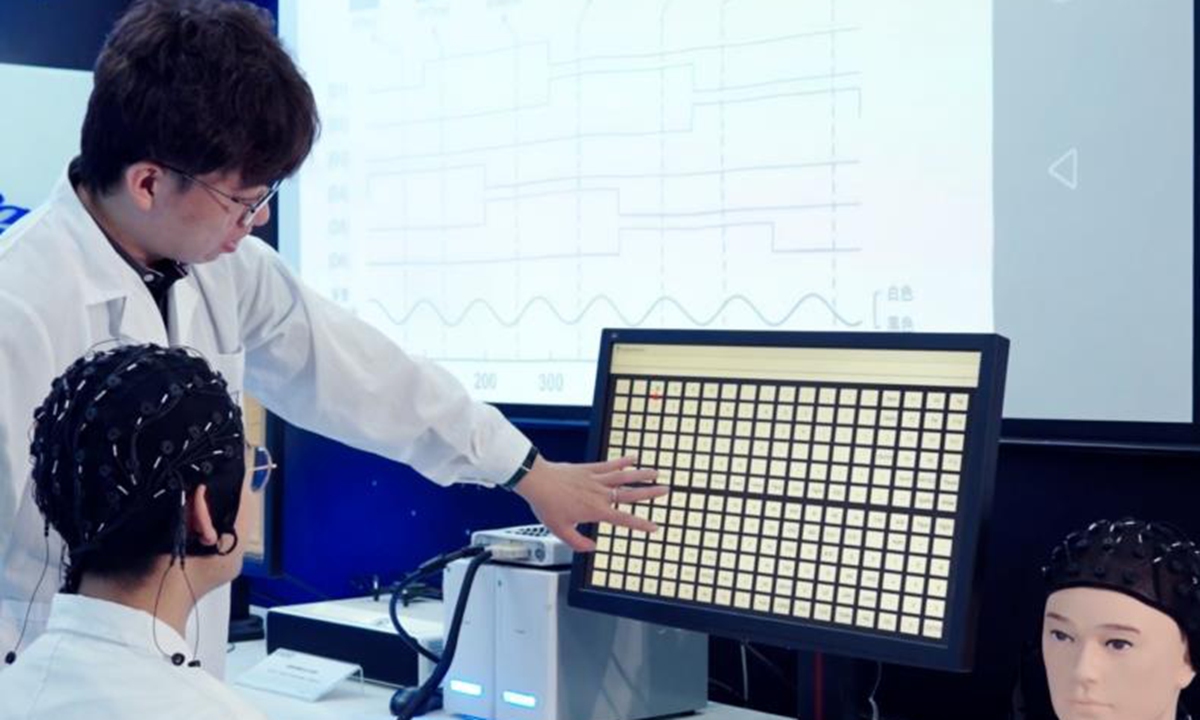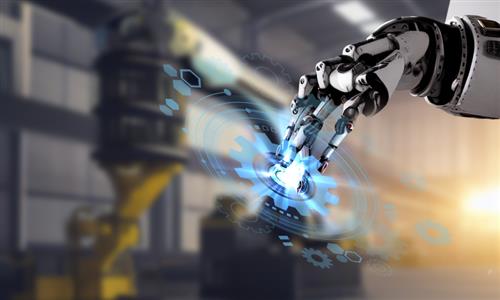Chinese researchers develop world-leading brain-computer interface chips: NPC deputy

A neuroscience team from Tianjin University demonstrates the high-speed brain-computer interface (BCI) with 216 targets on May 18, 2023. Photo: Courtesy of Tianjin University
Chinese researchers have successfully developed a 65,000-channel bidirectional brain-computer interface(BCI) chip, believed to be " far ahead" in terms of innovation of ultra-high-density implanted BCI system in the world, said Huang Li, a deputy to the National People's Congress (NPC) and chairman of Wuhan Guide Infrared Co -- a high-tech firm specializing in infrared thermal imaging technology.
The technological breakthrough has made China a world leader in BCI chip development, Huang said during the second session of the 14th National People's Congress (NPC) on Friday.
Huang detailed that the company has developed a two-way BCI technology with 65,000 channels, while foreign counterparts have developed 3,000 channels in one-way, Huang said in a note sent to the Global Times on Sunday.
"This kind of BCI chips can be used in many areas of new medical applications, including controlling prosthesis through human thoughts and treating nervous system diseases such as epilepsy, Alzheimer's disease, depression, and Parkinson's disease," Huang noted.
BCI is basically a technology that enables a person to control an external device using brain signals. It is a cutting-edge new technology that previously appeared in only science fiction, but it is moving from academic exploration to practical use."
China has already made solid progress in the field. In the latest major development, a research team at Tsinghua University recently published the details of cases in which two paralyzed patients regained a degree of movement through wireless, minimally invasive BCIs. One of the patients, paralyzed for 14 years, drank water from a bottle using robotic hands for the first time.
As an entrepreneur in the high-tech sector, Huang recently submitted a motion that focuses on supporting research and development in the BCI field at the ongoing NPC session in Beijing, with the aims of promoting the country's capability to produce fully domestically made BCI systems and related products.
"We should seize the opportunities of the new round of technological revolution and industrial transformation, actively leverage our own strengths and strive to achieve growth in the fields of low-altitude economy and BCI innovation," Huang told the Global Times.
Still, many companies have found navigating the approval process for a commercial medical BCI device a challenge, and Huang said the authorities should establish a green channel for registration and the market approval of BCI products.
China has highlighted the development of "future industries" as a key part of its development plan for the next few years, and frontier technologies including BCI may grow to be one of the new quality productive forces.
Huang said China should develop its own and controllable BCI system and enhance the innovation ability of core technologies and products in key sectors including BCI innovation to propel China's economy in the coming years.
To achieve this goal, the Government Work Report, which was delivered to the NPC on Tuesday, stated that China will vigorously advance new industrialization, make more breakthroughs in core technologies, and promote the cultivation of emerging industries and future-oriented strategic industries such as hydrogen power, new materials, bio-manufacturing, commercial spaceflight, quantum computing and life sciences.
Dubbed as the "Silicon Valley of China", Wuhan, capital city of Central China's Hubei Province, where Guide Infrared is based, Wuhan Guide Infrared Co has enjoyed ample supply of talent and policy support to promote industrial innovation, especially cutting-edge technologies to develop strategic emerging industries.
"In our next step, the company will establish a globally influential brain science research and treatment center and introduce advanced global BCI teams to settle in Wuhan, helping the city's BCI-related industries to lead the world," Huang said.


